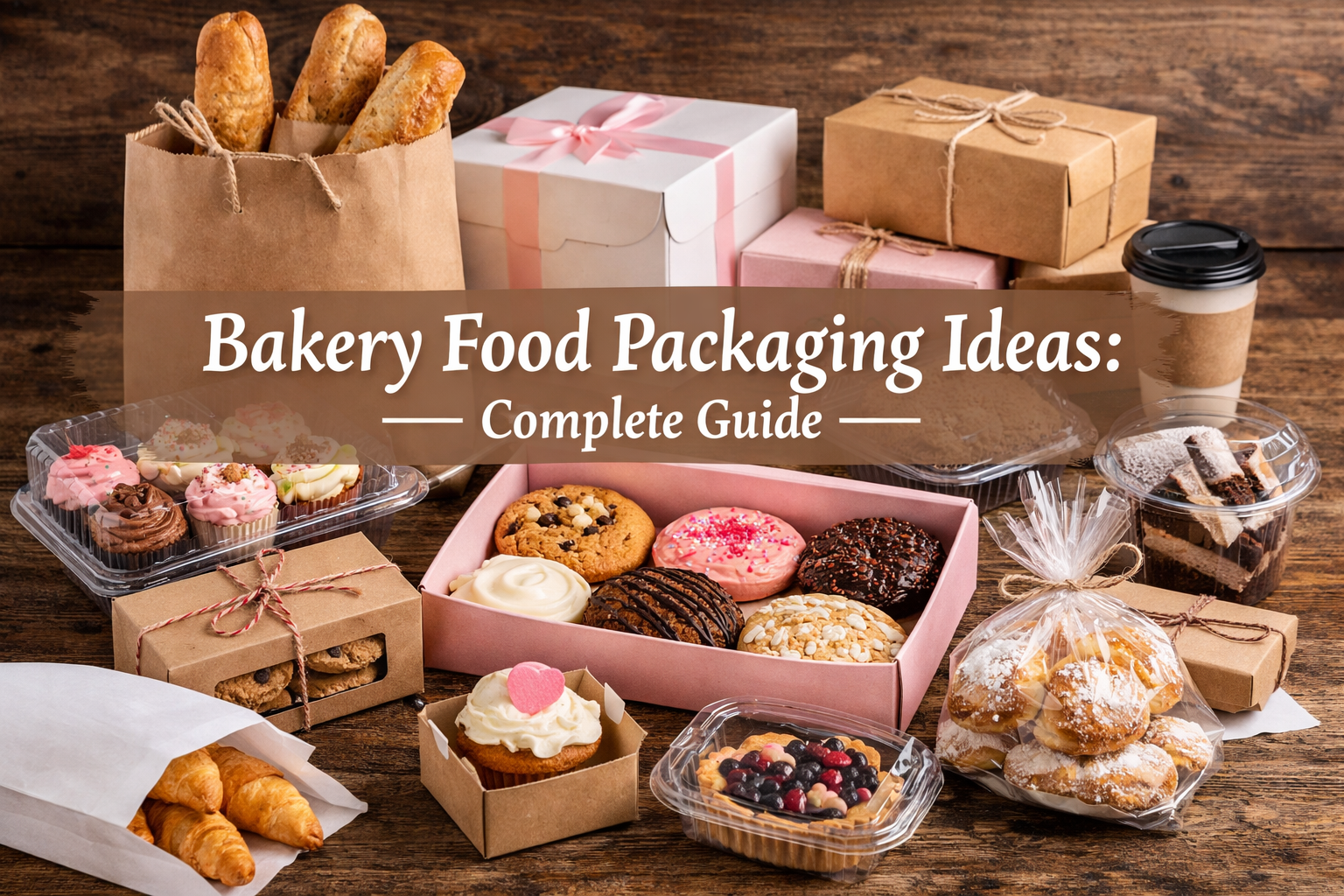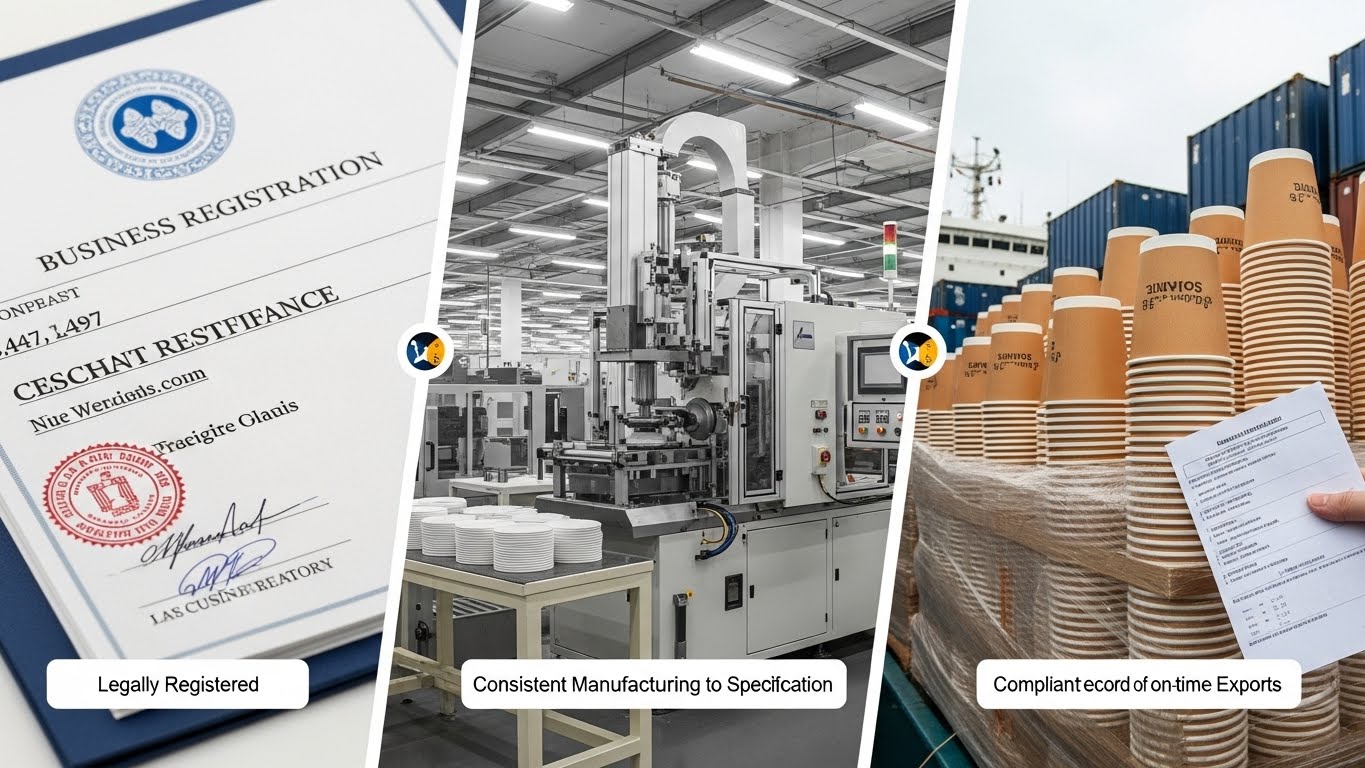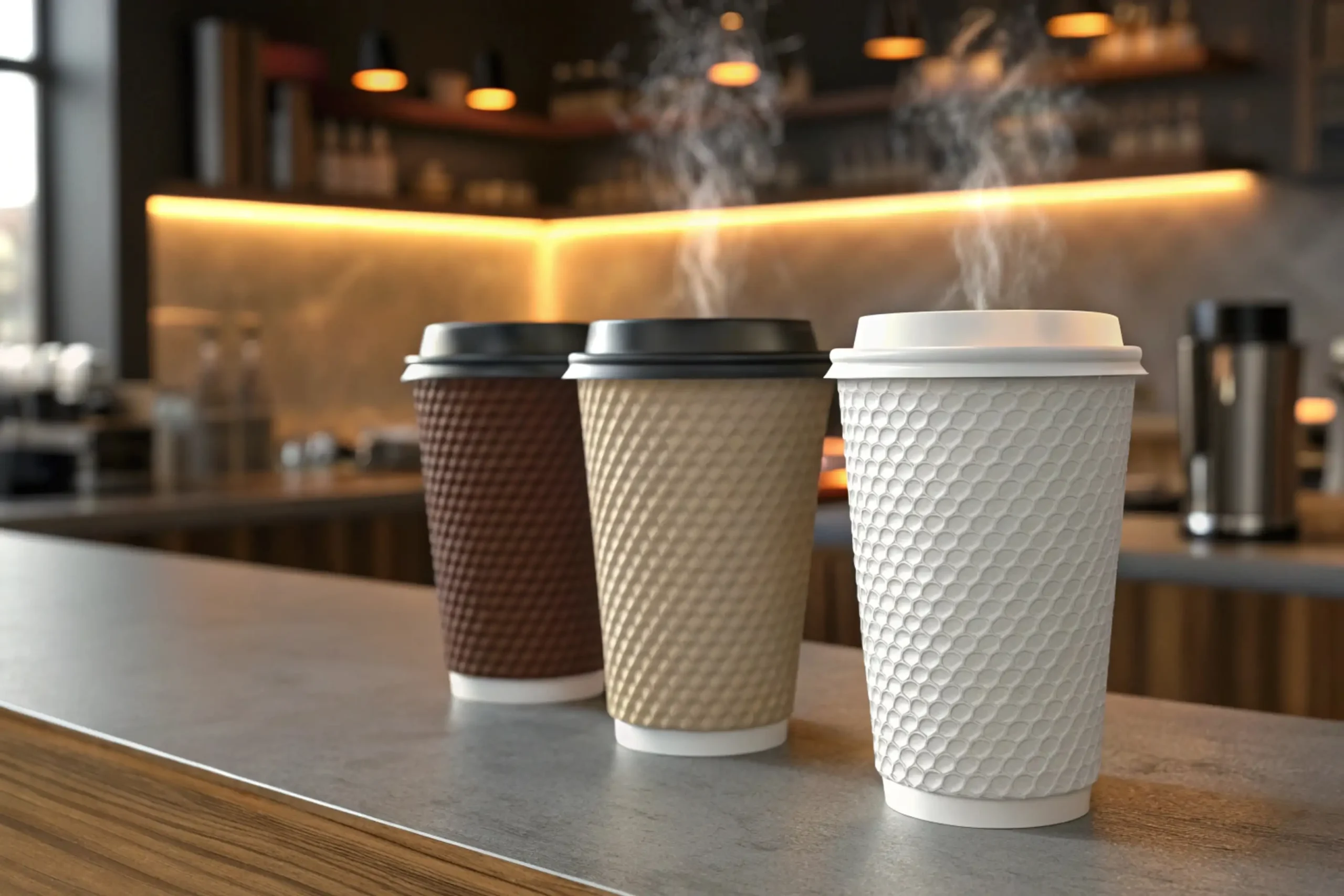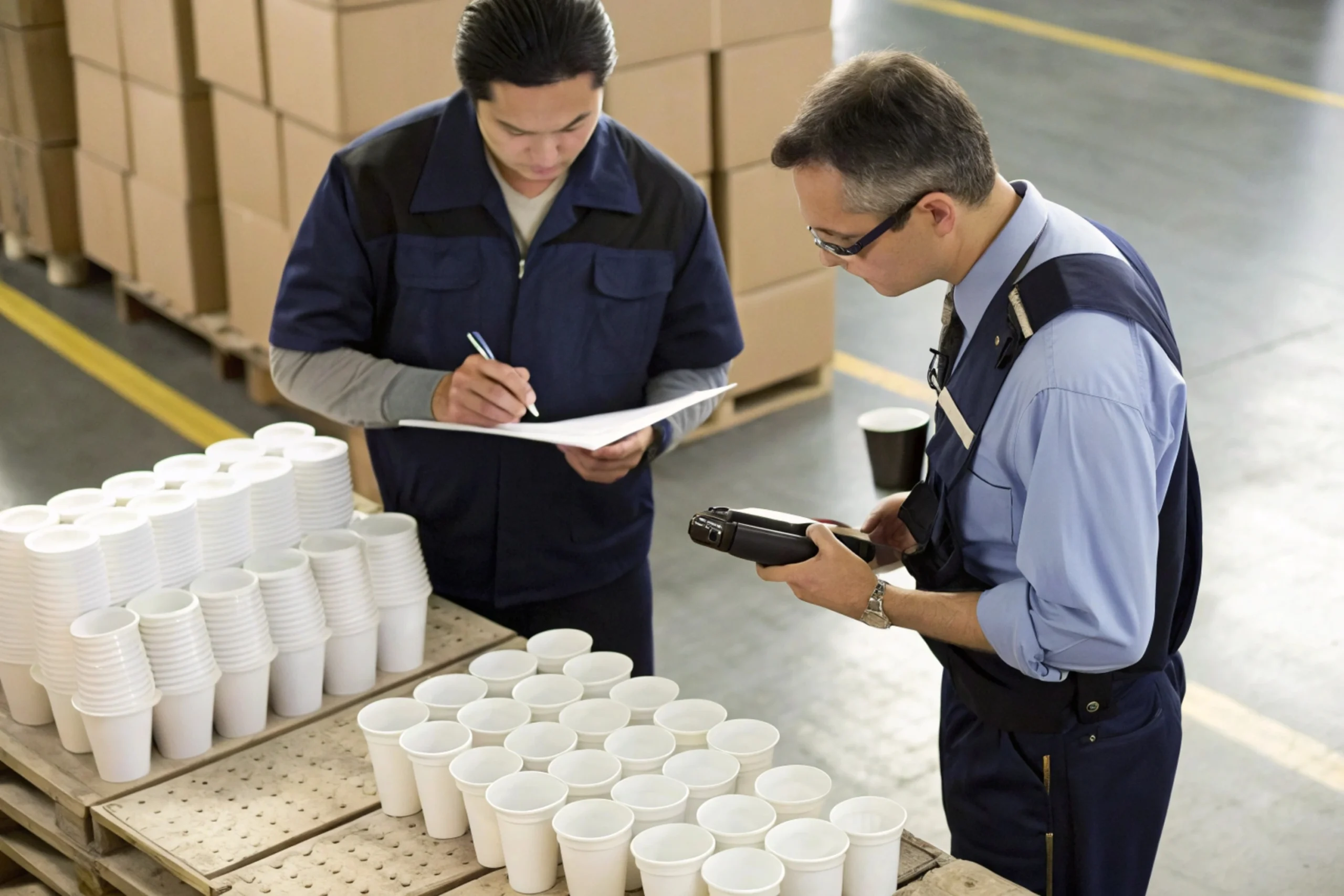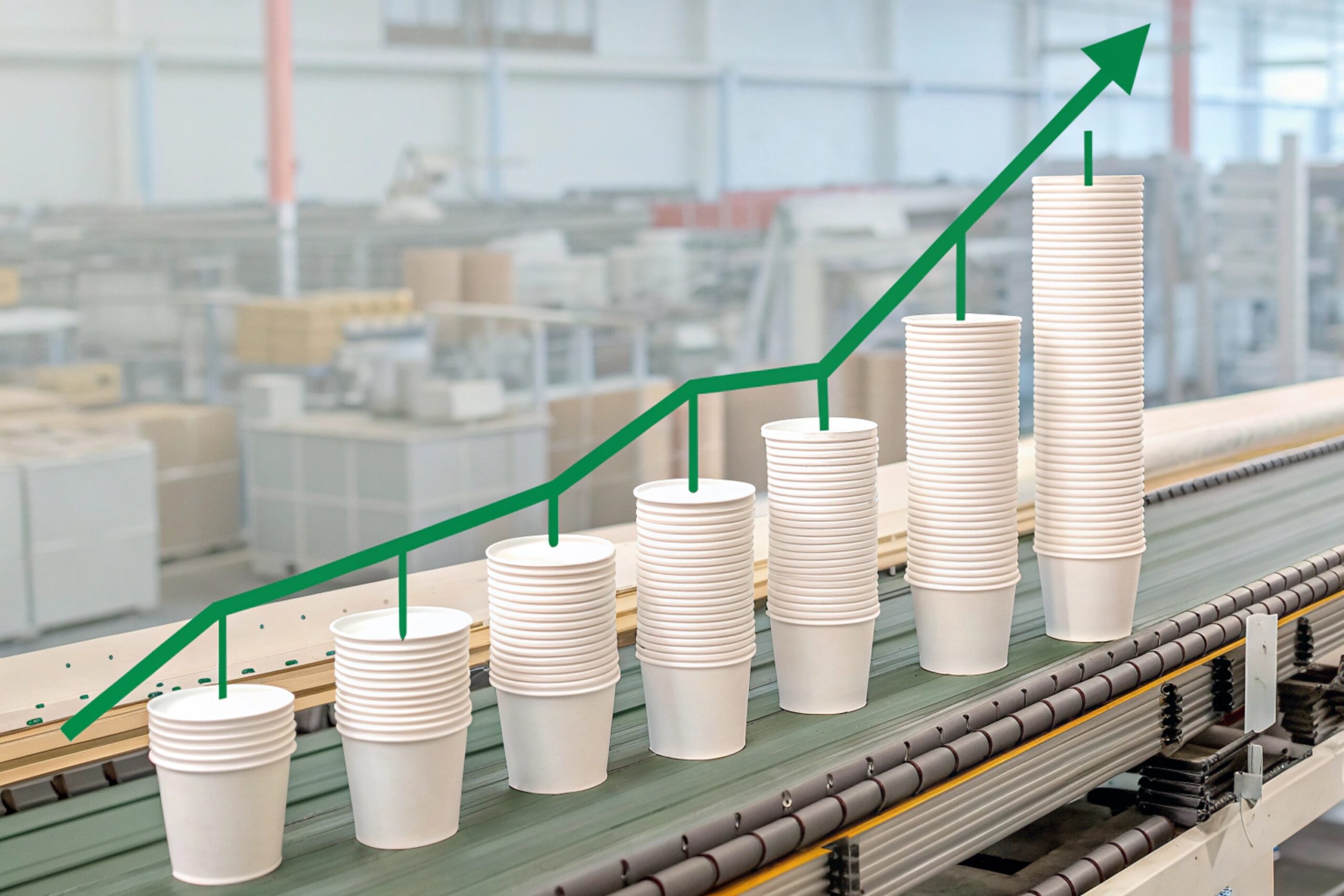As a Paper Cup distributor, Yes, There are tons of different coffee paper cups on the market for your choice:
Starting from Single Wall Cups, Ripple Paper Cups and Double Wall Paper Cups. Which one is right for your business? That can be a difficult question to answer, but we’re here to help. In this blog post, we’ll discuss the different types of disposable paper cups and what makes each one unique. We’ll also give you some tips on how to choose the right cup for your distribution business.

Disposable Coffee Paper Cups: Which One is Right for Your Business?
Coffee paper cups: Why does size important?
There are two main types of coffee paper cups: the standard cup and the “to-go” cup. Standard cups are typically used in restaurants and coffee shops. They come in a variety of sizes, but the most common size is 12 ounces. To-go cups are bigger, usually around 16 ounces. They’re designed for people who want to take their coffee with them.
Size isn’t the only important factor when it comes to coffee cups. The type of paper used can also affect the quality of your cup. Some papers are better at insulating than others. If you’re using a lower quality paper, your cup might not keep your coffee as hot as you’d like.
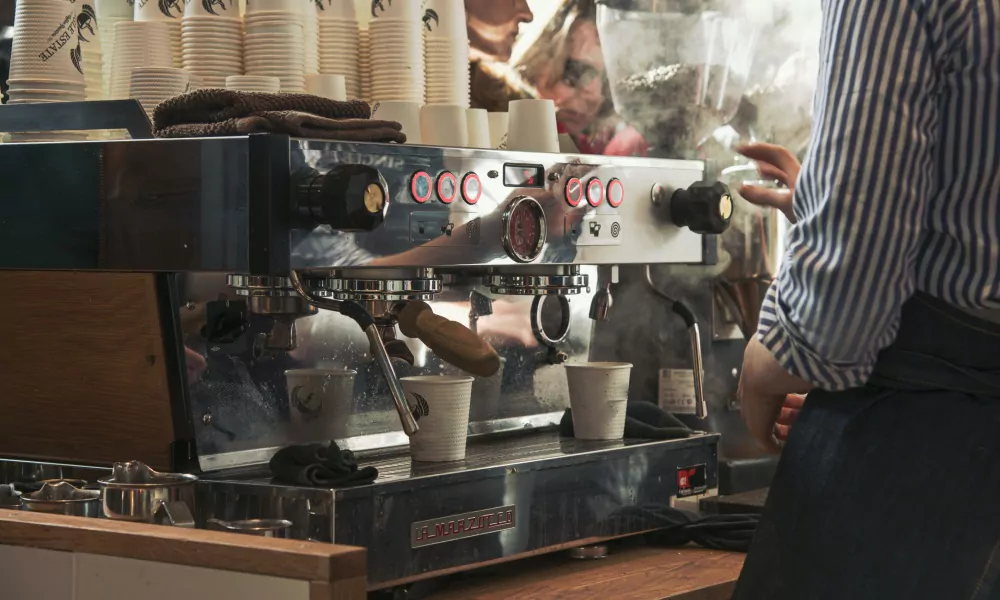
What are the standard coffee paper cups sizes?
Each coffee shop advertises the sizes of their coffees in their own unique way. Starbucks, for example, offers sizes such as Short (small), Tall (medium), Grande (large), Venti® Hot (extra-large), and Venti® Cold (extra-large). Small, Medium, Large, and X-Large are the sizes used by Dunkin’ Donuts.
Many cup sizes are marketed by how much they should ideally be filled rather than their actual capacity. This makes comparing sizes across different brands difficult. A “Tall” from Starbucks, for example, is 12 fluid ounces, whereas a “Medium” from Dunkin’ Donuts is 14 fluid ounces.
To further complicate matters, some coffee shops use both metric and imperial measurements. Cups, ounces, and pounds are commonly used in the United States. However, milliliters and grams are the European standard. A “Tall” from Starbucks, for example, is 354 mL, whereas a “Grande” from Dunkin’ Donuts is 473 mL.

So, how do you know which size is best for your company? It is entirely dependent on how much coffee your customers consume. Start with a smaller size and work your way up if you’re unsure. If your customers require larger sizes, you can always provide them.
Furthermore, size isn’t the only consideration when selecting a paper coffee cup. The type of paper you use can also have an impact on the quality of your cup. Some papers insulate better than others. If you use low-quality paper, your cup may not keep your coffee as hot as you would like.
What is the best type of paper for coffee cups?
There are two types of coffee cup paper: bleached and unbleached. Bleached paper is whiter and smoother than unbleached paper, but it is also more expensive. Unbleached paper is less expensive, but it is less smooth and can have a brownish tint.
It is critical to use the right type of paper for your coffee cups. You should select an insulating paper. This will aid in keeping your coffee hot. Some papers are better at this than others, so doing some research to find the best one for your needs is worthwhile.
What are the benefits of using disposable paper cups?
Disposable paper cups have a lot of benefits. They’re convenient, easy to use, and they don’t require any cleanup. You can just throw them away when you’re done with them. They’re also great for people on the go.

What are the drawbacks of using disposable paper cups?
Disposable paper cups also have some drawbacks. They’re not very environmentally friendly, and they can be expensive if you use a lot of them.
How to choose the right cup for your business?
When you’re choosing coffee paper cups for your business, there are a 8 tips you should keep in mind.
#1.Consider the type of coffee you’re serving. If you’re serving a specialty coffee that needs to be served at a certain temperature, you’ll want to make sure you have the right paper cup.
#2.Think about your customers. Do they tend to drink their coffee quickly or do they linger in your shop? If they linger, standard cups might be a better option. If they’re in a hurry, to go cups might be best.
#3.Consider your budget. Paper cups can vary in price, so it’s important to find a cup that fits your budget.
#4.Think about the size of your cups. If you have a small coffee shop, you might want to use smaller cups. If you have a large restaurant, you might want to use larger cups.
#5.Think about the type of paper you want to use. Some papers are better at insulating than others. Third, think about the price. disposable paper cups can be expensive, so you want to make sure you’re getting a good deal.
#6. Think about your customer base. If you have a lot of customers who are on the go, you might want to use disposable paper cups. If you have a lot of customers who stay in your restaurant or coffee shop, you might want to use reusable cups.
#7. Think about your brand. You want to choose a cup that represents your brand well. If you have a fun and friendly brand, you might want to use a brightly colored cup. If you have a more serious brand, you might want to use a white or black cup.
#8. Consider your environment. If you’re worried about the environmental impact of disposable cups, you might want to use reusable cups.
No matter what type of coffee paper cups you choose, make sure it’s the right size for your business and your customers. The last thing you want is to run out of coffee or have unhappy customers because their cup was too small.
Do some research to find the best paper cup for your business. Consider the type of coffee you’re serving, your customers, and your budget. With a little bit of planning, you can find the perfect cup for your business.
p.s If you’re looking for an eco-friendly option, consider using reusable cups. These cups can be used over and over again, which is better for the environment. Reusable cups also have the added benefit of being able to be customized with your brand.
The Bottom Line
This blog post should have helped you understand the various types of coffee paper cups and how to choose the best one for your business. Please leave a comment or contact us if you have any questions. We are always willing to assist! Thank you for taking the time to read this!


